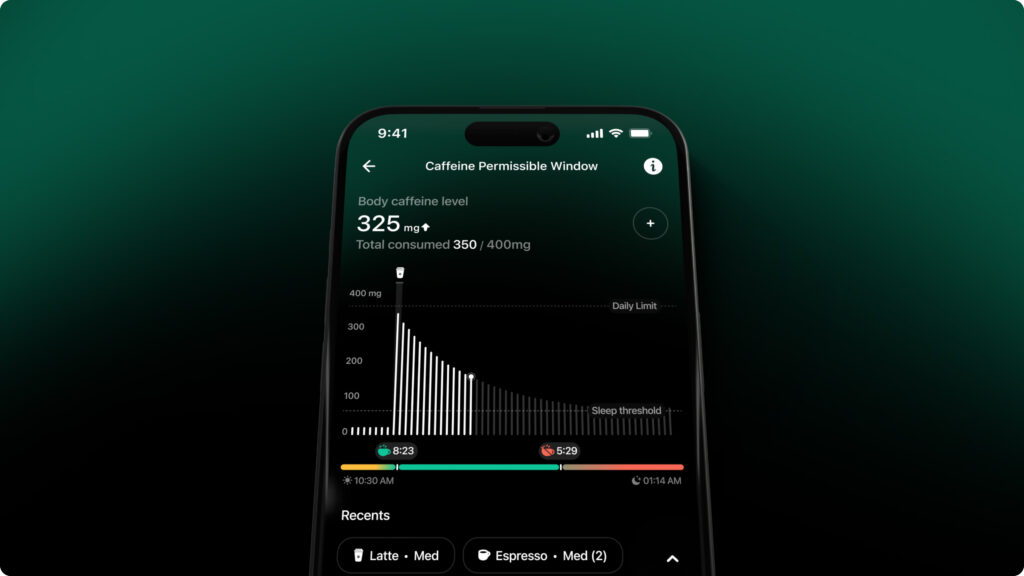Sleep is undervalued in a world that hails ‘hustle culture’. When you’ve had a few late nights and feel more tired than usual, sleeping in on a Sunday sounds restorative, right? Yet, catching up on lost sleep may not be as simple as it seems. Let’s take a closer look at the truth of sleep debt.

Highlights
- The difference between the amount of sleep required by an individual and how much one actually gets is known as sleep debt or sleep deficit,
- Acute sleep debt is short-term, while chronic sleep debt builds up over years of insufficient sleep,
- Chronic sleep debt can induce a higher risk of diabetes, obesity, heart disease, high blood pressure and stroke, further causing stress levels and potentially leading to anger, depression and irritability,
- The most effective way to develop sleep hygiene is to have a consistent routine with a fixed bed and waking time.
Sleep debt: cheating on sleep
Your body needs a certain number of hours of sleep each night. The difference between this amount and how much you actually get is known as sleep debt or sleep deficit. It’s the amount of rest you “owe” your body when you lose valuable sleeping time.
Sleep debt accumulates over time. For example, if your body needs eight hours of sleep each night and you’re only averaging six, then over a period of a week, you’ll have a combined deficit of 14 hours. Also, losing an hour each night for a week will have the same negative effect on your body as pulling a single all-nighter.
Short-term sleep debt can be reversed and it’s rather easy to catch up on. Long-term deficits, however, can have more lasting consequences. Let’s have a look at the differences.
Acute sleep debt is short-term. It’s the amount of sleep you’ve missed in relation to what your body needs over a period of two weeks. It can immediately affect your physical, mental and emotional well-being. Losing important hours of sleep time can instantly impact your waking hours. It can make you feel anxious, irritable or moody. It also weakens your immune system and may give you trouble with your memory, motor skills, reaction time or ability to focus on a task.
All of this sounds similar to when one is intoxicated, and research has shown that 18 hours without sleep results in the same cognitive impairment as having a blood alcohol level of 0.05 per cent. After 24 hours, that rises to 0.10 per cent—over the legal limit for driving in most countries. The effect is the same as an average-sized man drinking three beers in under an hour.
Chronic sleep debt is long-term. It builds up over years of insufficient sleep that is never made up for. For example, if you spent many years studying full-time while working evening shifts, you may be chronically sleep-deprived. Losing two to three hours a night over a long period takes its toll.
How sleep debt may harm us
These cumulative effects of chronic sleep debt can result in serious health consequences such as a higher risk of diabetes, obesity, heart disease, high blood pressure and stroke. A lack of sleep also increases your levels of cortisol, a stress hormone, that can potentially lead to anger, depression and irritability. This is in addition to the acute sleep symptoms on a day-to-day basis which dramatically reduces overall performance, energy levels and productivity.
As we saw with both acute and chronic sleep debt, not getting enough shut-eye can be very detrimental to your health. Not only does it weaken your immune system, but it also makes you feel tired throughout the day, and your brain struggles to process and store new information. Your career and relationships can be severely impacted.
A paper published in Current Biology revealed that simply sleeping in on a Sunday morning isn’t enough. The study found that participants who cut their sleep by five hours during the week and caught up on the weekend still paid a price. They ate more after dinner, gained weight, had lower energy levels and their body’s use of insulin was affected. While those that played catch-up with their lost hours on the weekend appeared to have balanced their sleep debt, they actually had similar results to those who remained sleep-deprived.
Interestingly, however, you don’t always feel tired when you have a sleep deficit. Our bodies have amazing ways of adapting even when it comes to chronic sleep restriction. You may not be yawning in a board meeting or feeling drowsy at all, yet you’ve already had significant declines in mental and physical performance without even being aware of it.
As this hidden exhaustion starts to build up, eventually your body will start to show signs of distress. This can range from snapping in irritation at a colleague to dangerously high blood pressure levels or cardiovascular disease.

How to avert sleep debt
1. Know your sleep requirements
Everyone is different and will require a different amount of sleep each night. You can learn what is best for you by keeping a sleep diary and noting what time you went to bed, how many hours you slept and how you felt the next day. You can also use a mobile app or fitness device to measure your sleep patterns.
2. Identify restorative sleep
Ideally, you will fall asleep easily and wake without the assistance of an alarm clock.
Take note of the average sleeping time that results in you feeling refreshed upon waking. If you need to adjust your sleep schedule, try and do it slowly in 30-minute increments.
3. Recover from lost sleep
Sometimes losing sleep is unavoidable. To recover from sleep debt you can: take short naps (not more than half an hour) in the afternoons; sleep in for an hour over the weekends; try to go to bed a little earlier for a few days when your body needs extra sleep.
Remember, sleep debt—and repaying it—is cumulative. You can catch up rather easily if you make an effort.
Sleep hygiene: How to sleep well
If you struggle to fall asleep, wake up often during the night or are sleepy during the day, then you may well be suffering from poor sleep hygiene. One of the best ways to overcome this is to have a consistent routine. Having a fixed bed- and waking time is essential. It creates a rhythm that your body gets used to.
It’s also important to develop a routine before bedtime and make your bedroom conducive to restful sleep (blackout curtains, no electronics, cool and quiet environment). You should also avoid caffeine for a few hours before sleep, exercise during the day, and only use your bed for sleeping (no Netflix, eating or laptop/mobile phone activity).
Give yourself around half an hour to wind down before going to sleep. This can include dimming the lights and calming activities like listening to soft music, light stretching, reading or meditation. Ensure that your mattress, pillow and bedding are comfortable, and consider soothing scents such as lavender in your room.
It’s not just about nighttime considerations. Your circadian rhythm also plays a role in how well you sleep. Getting enough sunlight, being physically active, reducing alcohol consumption and not eating dinner too late are all daytime activities that contribute to a good night’s rest.
Conclusion
While you sleep, your brain catalogues information and creates new neural pathways, and you get the time to repair damage to your heart and blood vessels. It’s a restorative activity that is essential for your physical and emotional health.
The effect of how much sleep you lose accumulates over time. Acute sleep debt is short-term, while chronic sleep debt builds up over years of insufficient sleep. It’s important to know your unique sleep requirements and make the necessary adjustments to ensure you’re sleeping well and catching up when your body needs to.
Disclaimer: The contents of this article are for general information and educational purposes only. It neither provides any medical advice nor intends to substitute professional medical opinion on the treatment, diagnosis, prevention or alleviation of any disease, disorder or disability. Always consult with your doctor or qualified healthcare professional about your health condition and/or concerns and before undertaking a new healthcare regimen including making any dietary or lifestyle changes.
References









